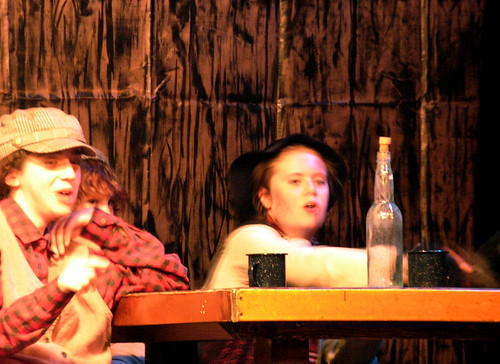A few weeks ago I posted a link to a “worst rhymes in pop music”, a topic that rewards — albeit poorly — the copious attention it inevitably attracts once you start thinking about it. In subsequent days, radio stations have driven home to me another “worst” category worthy off note: “worst syntax.” Some rhymes, after all, are themselves perfectly kosher, but their authors arrive at them by way of gruesome constructions or incoherent expressions (not “obscurely evocative,” but “outright insultingly stupid”).
The paradigm case, or course, is America’s “Horse With No Name,” which attains immortality in so many categories of badness that it’s not quite fair to include it with the rest of the popular song oeuvre.
In the desert, you can’t remember your name
Cause there ain’t no one for to give you no fame
Note that “name”/“fame” is a righteous rhyme, all right — and let’s bypass the issue of whether living in the desert induces onomamnesia — but that last line defies any English-speaker to utter it with a straight face. “There ain’t no one” — well, we’ll cut these young men some slack thus far — “for to” — oh dear, they lapse into a construction that might work in a folk song, a genuine folk song or an earnest imitation, but sounds painfully artificial in pop — “to give you no fame” — start with the triple negative “Ain’t. . . no. . . no. . . ,” then raise it by the power of the nonexistent expression “to give fame.” It’s a masterpiece of lyrical bad-osity.
But again, “Horse With No Name” attains sui generis badness status. If we look for a sublunary rival, what about Rod Stewart’s couplet from “Maggie May”:
I laughed at all of your jokes
My love you didn’t need to coax
Again, “jokes”/“coax” works; in fact, it’s a delightfully unpredictable pair that someone such as Cole Porter could have forged into a classic. But this pair’s second line transgresses every convention of English-language expression. The rest of the song has its plusses and minuses; Margaret doesn’t like it, but the band projects a strong, loose, semi-ragged conviviality that I admire. But that couplet comes around, and I have to wince.
Continue reading “More Bad”

